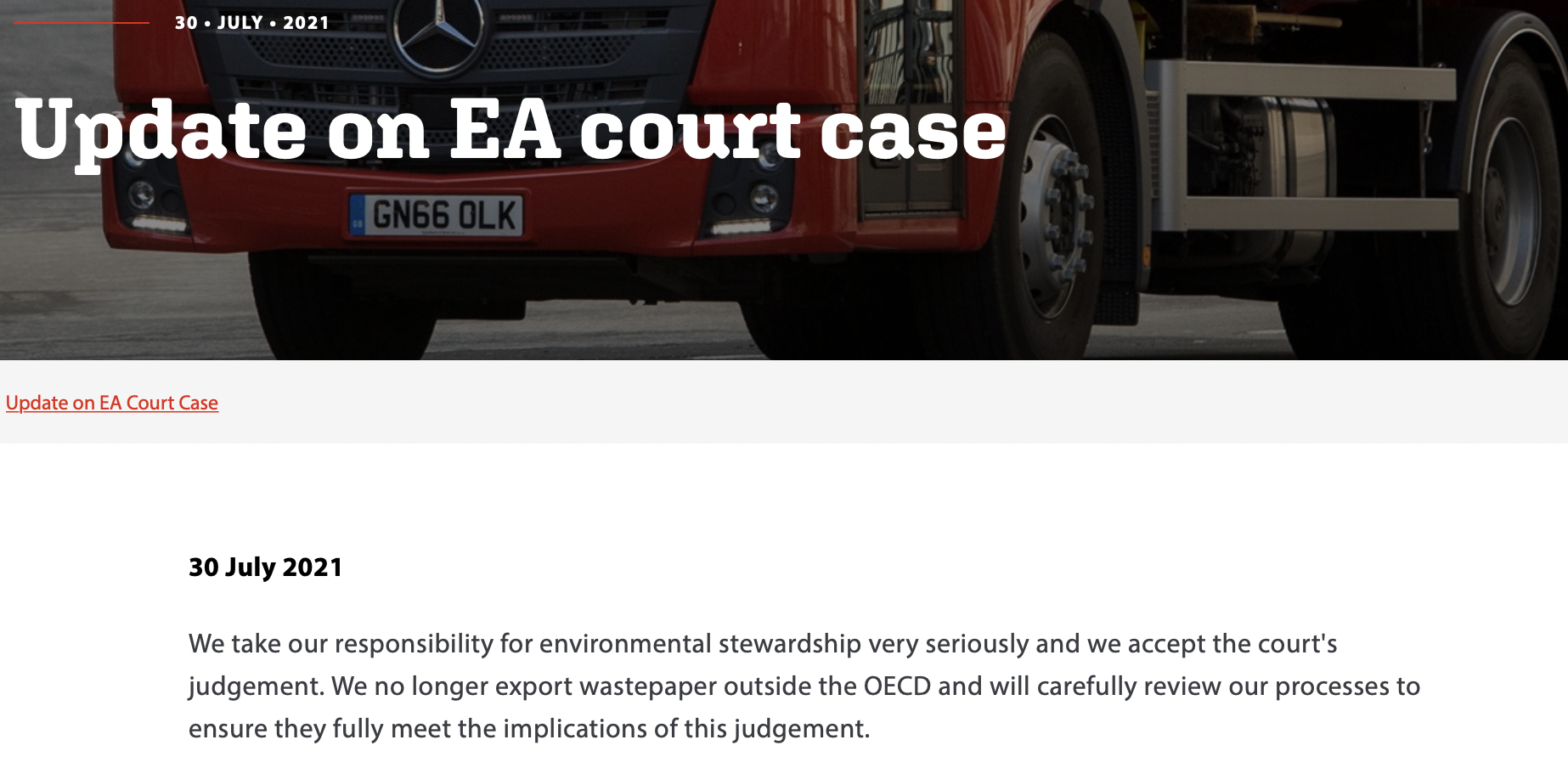
BIFFA DEMONSTRATES THAT CONSISTENCY IS KEY IN CRISIS COMMUNICATIONS
Leading nationwide integrated waste management business, Biffa, has come under fire following claims it recklessly exported waste to Asia. Communicate looks at the company’s comms strategy over the past year as an example of why consistent messaging is key to driving trust among external stakeholders.
With over 6k employees and a turnover of £830m, Biffa has the largest recycling capacity in the UK. In the past few weeks, the organisation has been at the centre of a comms crisis, following allegations it exported waste abroad in order to cut costs and maximise profit, regardless of ethical or environmental consequences.
The Environment Agency revealed that Biffa had rolling contracts, worth a combined value of £36.5k, exporting UK waste to India and Indonesia. Biffa claimed that the paper waste contamination was at a ‘de minimis’ level, meaning it could legally be exported.
However, the Environment Agency declared that the waste contamination level far exceeded permitted levels required for exportation to non-OECD countries. Upon public release of the report, Biffa promptly addressed the allegations with a clear statement in order to rebuff any negative reputational damage. In a statement, which has since been removed from the company website, Biffa denied the allegations and criticised the Environment Agency for prosecuting when it was not in the public interest.
On the 26 July Biffa was convicted of four offences and issued a penalty of £1.5m in costs. During the public hearing, Judge Shane Collery QC told Wood Green crown court that the decision to break regulation was, “reckless, bordering on deliberate,” and that the company’s previous comments about unfair treatment from the Environment Agency, were “aggravating and unattractive.”
Beth Gaudin, senior consultant at specialist social change agency, Forster Communications, says, “Transparency remains key when communicating about any issue, especially complex ones like sustainability. There is increasing scrutiny on any claims made in this area, and a growing sensitivity to any sense of ‘greenwashing’. No organisation can ever claim to be perfect, there will always be missteps. But, when one occurs, that is not the time to stop communicating.”
On 30 July the company released a news story titled ‘Update on EA court case’ which simply included a concise and direct statement taking responsibility. The title of the statement as an ‘update’ ensures the comms remains focused and factual without drawing further attention to the guilty verdict and negative comments regarding its conduct.

This is not the first time Biffa has faced allegations of this kind. On 26 June 2020, Michael Topham, chief executive of leading sustainable waste management at Biffa, responded to claims that the company exported burning plastic waste to Turkey.
In this instance, Topham released a direct statement on the company website. He began by acknowledging the issue at hand, “These reports that waste from the UK, intended for recycling, is being ineffectively processed and discarded in this way are deeply disappointing.” Recognition of the wider issue ensures the company remained publicly aware of its ethical responsibilities.
Biffa made its position regarding accountability very clear, Topham said, “Biffa does not export any plastic waste to Turkey.” The statement then focuses on the proactive steps Biffa is taking in order reaffirm its positive reputation as a socially and environmentally responsible business. In one example, Topham said, “As major investors in UK green economy infrastructure we have made clear our commitment to unlocking £1.25bn of investment in sustainable waste management facilities by 2030.”
“Acknowledging issues and highlighting the steps being taken to remedy them can help to build trust and protect reputations. Of course, this also requires there to be action underpinning any communications. That is, ultimately, what will speak the loudest,” says Gaudin.
The press release closes with a call for the government to introduce stricter regulations on exporting waste from the UK. While this statement alone follows a clear strategy of awareness, acknowledgement and proactive response, it did not retain impact when viewed in conjunction with the recent scandal, as Biffa was found guilty of disregarding the very regulations it claimed needed reform.
Consistent messaging is key to delivering authentic and trustworthy communications, particularly when delivering on ESG commitments, as greenwashing has become increasingly prevalent. “The reaction to the ruling against Biffa shows how important it is to never make claims that cannot be backed up by evidence. This is the first step of any sustainability programme, understanding what you want to communicate about your organisation and how you can underpin this with proof-points,” says Gaudin.

